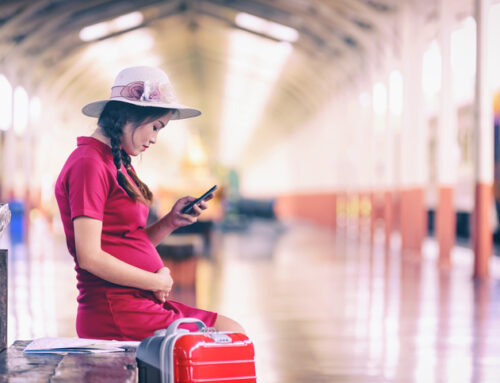Cruise health
You’ve been planning your cruise vacation for months! Don’t let poor health derail your plans. Here are some common errors that you can easily avoid by making a travel health appointment before your cruise.
‘On a large liner, seasickness won’t bother me’ – FALSE
Even the largest ship will roll in response to bad weather and ocean currents, which can cause unexpected seasickness in even seasoned passengers. Seasickness can cause fatigue, dizziness, and nausea, as well as vomiting. Some people sweat or get headaches, and if you are susceptible, it can trigger a migraine. Many people are affected during the first 48 hours of a voyage, and an over-the-counter remedy may be beneficial. On NHS Choices, you can learn more about motion sickness.
‘No-one gets sick from cruise liner food’ – FALSE
The hygiene standards on cruise ships are very high. Cruises provide such a diverse range of dining options that there is no need to eat unfamiliar foods that may cause GI upset or diarrhoea. However, passengers on a liner are still vulnerable to outbreaks of gastro-intestinal illnesses such as norovirus. Norovirus spreads quickly on cruise ships and can even survive on sanitised surfaces.
So it’s important for passengers to maintain good hand hygiene. You should also learn about food safety from our article or by asking about it during a health appointment before a cruise to protect yourself from stomach upsets while on your cruise.
‘I’m on holiday; I don’t need a routine!’ — FALSE
The luxurious food options and 24-hour activity on board a cruise liner may tempt you to stay up late and eat and drink excessively. Experienced passengers, however, will tell you that sticking to a rough routine helps them get more out of their trip. A consistent routine will help you feel in control of your surroundings, which will benefit your overall well-being.
If you’ve flown to join a Caribbean cruise, a routine helps you recover from jet lag. A routine will encourage you to eat regular meals, preventing discomfort caused by overindulgence.
Many liners even have gyms and swimming pools, and you may find that getting some exercise every day is beneficial.
A routine may help you sleep better: some passengers have difficulty settling due to unfamiliar sounds and sensations.
‘I tan rather than burn, so I don’t need sunscreen’ – FALSE
Some sunlight is beneficial because it helps your body produce vitamin D. Sunburn, on the other hand, increases your risk of skin cancer and should be avoided. The light reflected off the sea intensifies the sun’s harmful rays, and if you’re in the tropics, the sun will be even stronger. Use sunscreen, seek shade between 11am and 3pm, and cover up with clothing and a wide-brimmed hat to avoid sunburn. More information about sun safety can be found on the NHS Fit for Travel website. And you can get more advice about staying safe in the sun at sea during a travel health appointment before your cruise.
‘Cruise passengers don’t need any travel shots’ – FALSE
If you plan on taking any port excursions during your cruise, you may be exposed to diseases endemic to those areas. And some diseases that are vaccine preventable are spread person-to-person. Many vaccines provide immunity for several years, and in the case of yellow fever, immunity is lifelong.
Speak with a travel health professional at one of our city-centre travel clinics. Whatever your itinerary, they can assist you in devising a cost-effective regimen to protect your health.




